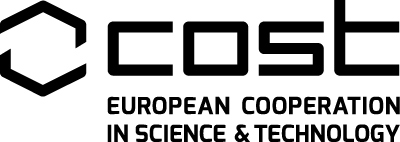Home > COST Action 340: Towards a European intermodal transport network: lessons from history
Projekta vadītājs/a:
,

Academic degree and current position in TSI: Professor, Dr.sc.ing. Dr.hab.sc.ing, leading researcher of the Engineering Faculty, Director of PhD Programme “Telematics and Logistics”.
Previous Experience: Founder and President of Transport and Telecommunication Institute for over 15 years, Vice-rector for Research and Development Affairs for more than 10 years
Membership: Member of the Joint OECD/ITF Transport Research Committee (OECD – Organization for Economic Co-operation and Development, ITF – International Transport Forum), Member of Institute of Electrical and Electronics Engineers (IEEE), Corresponding Member of Latvian Academy of Science, President of Latvian Transport Development and Education Association, President of Latvian Operations Research Society, Editor-in-Chief of the Journal “Transport and Telecommunication”, Member of the board of the Journals “Transport”, “Technological and Economic Development”, “Journal of Aviation Technology and Engineering” etc.
Academic experience: Author of more than 600 academic and research publications, author of 68 patents. Expert of the Latvian Council of Science in Civil and Transport Engineering, Chairman of promotion council for PhD degree in Civil and Transport Engineering, Chairman of Professor Council in Telematics and Logistics.
Teaching at post- and graduate level: 45 years of pedagogical experience in university; courses: Research Methodology (PhD programme); New Trends of Telematics and Logistics Development (PhD programme), Research Methodology (MSc programme), Theory of Systems and System Analysis (MSc programme), Transport Policy (MSc programme), Intelligent Transport Systems (MSc programme), Reliability Engineering (BSc programme) etc.
Participation in projects: has participated in 37 international projects (in 26 projects as national coordinator of the projects) and 26 Latvian research projects and programs (in 23 as head of the projects) within the frame of COST Activities, Horizon 2020, Framework Programs, INTERREG etc.
Research Interests: Transport Telematics and Logistics, Smart Cities, Analysis and Modelling of Transport Systems, Intelligent Transport Systems, Reliability of Electronics Systems, Internet of Things, Cyber-Physical Systems, Information Technology Applications, Electronics and Telecommunication, Decision Support Systems, Avionics, Air Traffic Control Systems and others.
Supervised Doctoral, Master and Bachelor Theses: Supervisor of 9 PhD theses and more than 200 Master and Bachelor theses.
Awards: 2 Gold and 5 Silver Medals of International Research and Innovation Exhibition of Innovators (1985-1990); Honorary title “Latvian Honored Inventor”, Latvian Parliament (1989); Award for Innovative Excellence in Teaching, Learning and Technology, USA (1998); Award and memorial medal for outstanding research in computer science and informatics, Latvian Academy of Sciences (2001); Award and memorial medal for outstanding performance of research in air navigation, communication and radar technology, Latvian Academy of Sciences (2002); Certificate of Recognition as a significant contribution to the research and educational work in the transport, logistics and information technology, as well as on the international success in science, Cabinet of Ministers of the Republic of Latvia (2014); Certificate of Honor of the Latvian Academy of Sciences for research in the field of transport and logistics (2019).

The main objective of the Action is to contribute to the creation of a European intermodal transport network by defining a framework of references and concepts to guide current European policy in this area.
This will be achieved by identification and analysis of the obstacles that transport intermodality has encountered to date in order to propose methods for solving the most significant problems.
The choice between different modes of transport studied over the long term, will be assessed in order to understand the historic characteristics of intermodality in Europe in the following specific areas :
The history of network connections between different modes of transport since 1945 has contributed to defining the possibilities for developing a European intermodal transport network.
The interoperability of different geographic networks (intramodal) and of different transport networks (intermodal) is the key to the set up of an effective European intermodal transport network. The project will therefore seek to identify the conditions which permit this interoperability by analysing successful case studies in the following areas:
The researchers will work together in thematically defined teams which will meet periodically (four seminars are planned). They will use and improve upon existing statistical data bases (e.g. mobility and freight traffic in Europe) and computerised bibliographies.
Creation of a European intermodal transport network is a high-priority objective of the European Community and one to which it has dedicated studies, specific legislation and very considerable funds. Successful creation of such a network should take into account the lessons to be learned from correct analysis of the already long history of the integration of European transport networks. Earlier research; completed by the authors of this project and their correspondents in several COST member countries, has already demonstrated the historical importance of the concepts of intermodality, interconnection and interoperability. The project is thus based on the postulate that detailed knowledge and rigorous historical analysis of the various transport policies, envisage or put into effect since 1945 can significantly improve understanding of current issues involved in the creation of a European intermodal transport network, of the conditions that would make this possible and of the obstacles encountered to date. Numerous studies in transport geography and economics have been completed on waterway, road, rail and air transport networks in different countries and these will provide key input.
This project will complement existing knowledge with new historical research, thereby summarising and extending its conclusions in order to establish a solid basis for the creation of a European intermodal transport network.
The principal users of the results will be national decision-makers and experts charged with developing current transport policy.